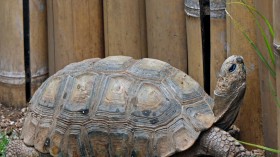Your son or daughter's Picasso-esque scratches of crayon on paper may actually be a good indicator oh how well they will do in school, a team of researchers is now suggesting.
According to a study published in the journal Psychological Science, the accuracy of a child's observational skills - as interpreted by their ability to draw a real-world object - could be tied directly to their intelligence in adolescence.
"The correlation is moderate, so our findings are interesting, but it does not mean that parents should worry if their child draws badly," Rosalin Arden, the lead author of the study, said in a statement. "Drawing ability does not determine intelligence, there are countless factors, both genetic and environmental, which affect intelligence in later life."
However, she adds, "through drawing, we are attempting to show someone else what's in our mind. This capacity to reproduce figures is a uniquely human ability and a sign of cognitive ability, in a similar way to writing, which transformed the human species' ability to store information, and build a civilization."
To link intellect with drawing, the researchers used data from the "Draw-a-Child" test, asking parents to have their four year olds draw the image of a little boy or girl.
A whopping 7,752 pairs of identical and non-identical twins were involved in the study (15,504 children total). This pictures were scored on a scale of 0 to 12 and were dependant on the number of accurate physical features shown - such as a head, eyes, nose, body, etc. The four-year-olds were then asked to take a short intelligence test.
Ten years later, the researcher revisited these same pairs of twins, asking them to again take an intelligence test.
Astoundingly, the researcher found a moderate-but-obvious correlation between high drawing scores and later intelligence. They also observed that the intelligence and even drawing scores or the identical twins were more similar than the non-identical pairs, indicating that the kind of intelligence reflected by drawing ability is genetic.
"This does not mean that there is a drawing gene," Arden warned. "We are a long way off understanding how genes influence all these different types of behavior."
© 2024 NatureWorldNews.com All rights reserved. Do not reproduce without permission.





